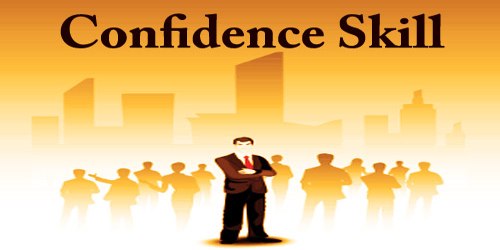The term, Confidence is, in part, a result of how we have been brought up and how we’ve been taught. Self-confidence refers to a person’s trust in his abilities and judgment which allows him to freely express his knowledge and opinion with no or little difficulty. Trust is also a product of our experiences and how we have learned to adapt to various circumstances.
Although self-confidence relies on various factors including a person’s temperament, society, and culture, educational level, wealth, trends of successes and failures, etc. within the workplace, people are more likely to reply to ideas that are presented confidently. A highly confident person could also begin to wilt in confidence after suffering consecutive failures but regardless of the case may be, self-confidence is often a mind game; it’s captivated with the mentality or mindset of the person.
There are some ways to look confident, including by making eye contact after we are addressing someone, sitting up straight with our shoulders open and preparing earlier than time so our thoughts are polished. There are certain persons and job positions that need people with absolute self-confidence. A number of these are lawyers and judges, journalists, managers, packaging officers, actors, pastors, teachers, marketing managers, and sales personnel, etc.
Confident people are not only willing to practice; they are also able to admit that they do not know everything and that they cannot know everything. Self-confidence is an ability which everyone requires. Below are some random benefits of self-confidence:
Self-confidence is the guiding force for launching new ventures for businessmen and pioneers.
Self-confident people are ready to express themselves freely and make an enduring impression on the minds of employers during job applications and interviews.
People easily trust self-confident people because of the connection between self-confidence and competency. Because of this, highly motivated workers are also granted large assignments and lucrative contracts.
With a high level of self-confidence, we are able to take independent but great decisions in our organization or our field of labor. People don’t worry about their superiors with constant requests for directions and directions.
Confidence is not any longer the correct word; it’s about purpose. Rather than agonizing about what others might consider us or our work, think about the unique perspective we bring. Low-confidence may be a result of many factors including: fear of the unknown, criticism, being unhappy with personal appearance (self-esteem), feeling unprepared, poor time-management, lack of information, and former failures.
Over-confidence are often an issue if it makes us believe that we are able to do anything whether or not we do not have the mandatory skills, abilities, and knowledge to try and do it well. Train ourselves till we’ve acquired all the needed skills in our specific field of labor and take practice tests if possible. Success in practice tests automatically raises our level of confidence.
Actually, confidence is that the term we use to explain how we feel about our ability to perform roles, functions, and tasks. Make a habit of thinking positively about our self. Specialize in our strengths and see our weaknesses as a chance to be told more. In fact, stressing yourself is that the only thanks to grow. Be honest with ourselves about what we all know and what we still have to learn. When people get convinced and accept our ideas regularly, our confidence levels are on the rise.
Information Sources:
















